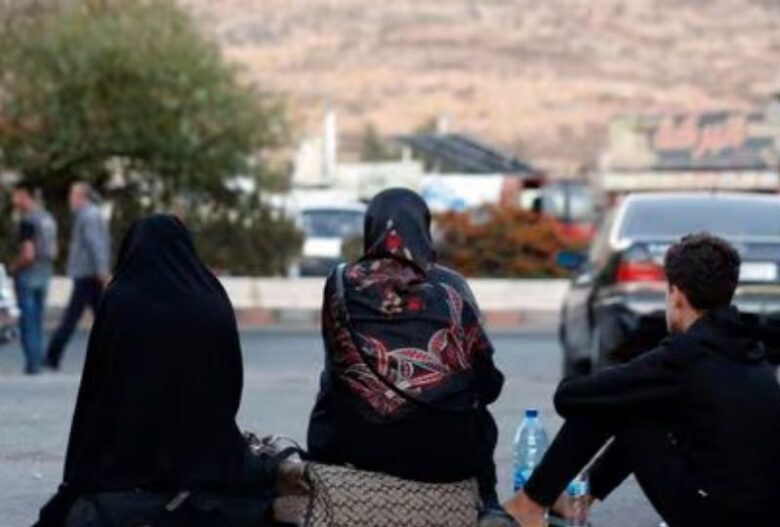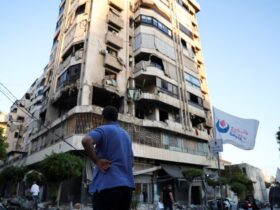U.N. officials estimated that thousands of Lebanese and Syrian families had already made the journey, with numbers expected to rise as Israel intensifies its aerial bombardment of southern and eastern Lebanon. Local reports indicate that more than 600 people have died this week due to the strikes.
Israel asserts that its operations are aimed at Hezbollah fighters and weaponry, but around a quarter of those killed are women and children.
Starting Monday, lines of buses and cars extended for several miles from the Syrian border, with some families seen making the trek on foot. Upon arriving in Syria, individuals faced lengthy waits for processing by overwhelmed border officials, while relief workers distributed food, water, mattresses, and blankets.
In the border town of Jdeidet Yabous, some families sat despondently by the roadside when Associated Press journalists visited. Many used their bags as makeshift seats while waiting for taxis, buses, or relatives to pick them up. Several reported spending eight or nine hours in traffic just to cross into Syria.
Before entering, crowds packed into a government office to be processed by immigration officers. Syrian citizens were also required to exchange $100 for Syrian pounds, a measure aimed at strengthening the local currency by increasing dollar circulation. This sudden surge in demand caused a shortage of Syrian pounds at the border.
Some refugees, like Ahmed al-Halabi, were returning Syrians who had fled to Lebanon in 2014. “We went to south Lebanon to live and work. When the latest conflict erupted, there were too many strikes and extensive destruction, so we left. We barely made it; we’ve been on the road for three days,” he shared.
Many Lebanese families were also seeking refuge, including Hussein al-Abdullah, who lives in Baalbek, an area heavily targeted by Israeli bombardment.
This cross-border migration marks a significant reversal, as Lebanon has been hosting over one million Syrian refugees fleeing their country’s ongoing civil war that began in 2011. Approximately 775,000 Syrians are registered with the U.N. Refugee Agency in Lebanon, with many more believed to be unregistered.
For many in Lebanon, especially those in the eastern Bekaa Valley, Syria seems to offer the quickest route to safety. While the war in Syria continues, active fighting has largely subsided in many areas, and Lebanese citizens can cross the border without a visa. Renting an apartment in Syria is also significantly cheaper than in Lebanon.
Even before the recent escalation, some Lebanese had secured rentals in Syria as a precautionary measure. Besides those fleeing the conflict, many Syrians visit Lebanon for work or family reasons and frequently cross the border.
However, many refugees are hesitant to return to Syria, fearing arrest for perceived opposition ties or forced conscription into the military. Leaving Lebanon could also mean losing their refugee status.
Earlier this week, Syrian President Bashar Assad announced an amnesty for crimes committed before September 22, including for those who evaded compulsory military service.
While similar amnesties have been issued in the past, they have not convinced many refugees to return, nor have efforts by Lebanese authorities to organize “voluntary return” trips.









Got a Question?
Find us on Socials or Contact us and we’ll get back to you as soon as possible.